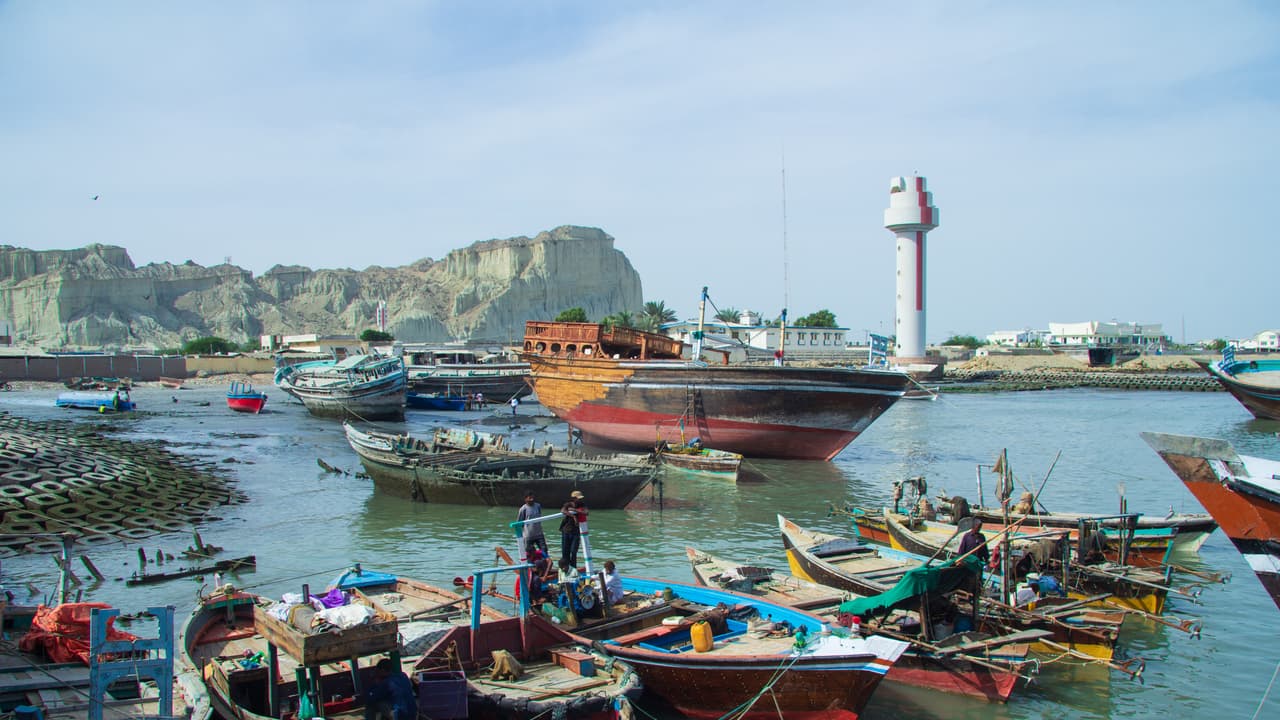Stateless dhows from Pakistan’s Makran coast smuggle heroin and meth across the Arabian Sea, evading enforcement and exposing regional maritime security gaps for India, Oman, and Gulf states.
New Delhi: For years, a quiet fleet of weather-beaten wooden dhows has slipped out of Pakistan’s Makran coast under moonlight rudder-tied, engine-humming, and flagless.
By dawn, they vanish into the Arabian Sea, bound for the Gulf of Oman or East Africa with holds full of heroin and crystal meth.
Each seizure by foreign navies adds another dot to a pattern the world already recognises but seldom names: Pakistan’s coastal fleet is the backbone of a regional narco-network.
A Route the World Knows, but Pakistan Denies
The United Nations Office on Drugs and Crime calls it the “Southern Route.”
It runs from Afghan poppy fields through Balochistan’s deserts to makeshift jetties near Pasni, Gwadar, and Jiwani, before spilling into open water.
Despite years of “joint operations,” interdictions keep pointing to the same origin. The Combined Maritime Forces (CMF) in Bahrain – Task Force 150 in particular, have repeatedly announced record-value drug seizures in the Arabian Sea, most labelled as cargo from stateless dhows operating out of Pakistan’s coastline.
In October 2025 alone, two such vessels were intercepted in CMF operations, their combined haul valued near US $1 billion.
The Convenience of Being Stateless
Labeling dhows “stateless” helps everyone. It lets Islamabad deny ownership, allows foreign coalitions to claim success without diplomatic friction, and keeps the supply chain intact. But dhow crews are rarely unknown.
The hull numbers, rigging patterns and engine types recur. Satellite imagery has even shown the same vessels leaving the same Makran coves months apart.
“They aren’t ghosts,” says a retired Indian Coast Guard officer familiar with CMF debriefs.
“They’re the same fishing boats with new paint and old habits.” Yet prosecutions inside Pakistan remain almost non-existent. The maritime theatre ends once the cameras switch off.
Why the Dhows Keep Sailing
Part of the answer lies onshore. The Makran belt is impoverished, militarised, and dependent on smuggling for survival. Local traders earn in days what legitimate fishing would bring in a month.
For security agencies, the calculus is simpler: keeping the route “managed” prevents unrest while maintaining leverage with international partners who reward visible cooperation.
The dhows, in other words, function as both a safety valve and a bargaining chip – a maritime currency Pakistan spends to buy legitimacy.
Wider Currents, Shared Costs
Every dhow that escapes Pakistani waters increases the burden on others.
Gulf states now intercept meth consignments with astonishing frequency; Omani authorities have warned of a “flood” of high-purity shipments.
Indian naval patrols, meanwhile, operate far west of their usual beat, chasing ghost boats that should have been stopped long before they left shore. Each success at sea exposes a failure on land and the pattern never breaks.
Optics versus Enforcement
The contrast is telling. When India or Oman announces a bust, case files, coordinates and custody details are public. When Pakistan does, the trail ends with a press release.
International observers privately admit that Islamabad’s counter-narcotics diplomacy has become as rehearsed as its financial negotiations: deliver a spectacle when the IMF or FATF comes calling, then return to business as usual. For Pakistan’s navy, CMF missions offer visibility; for its traffickers, they offer camouflage.
The Unseen Threat
Beyond drugs, these dhows carry data. Each voyage maps weak spots in regional maritime domain awareness. The persistence of “stateless” fleets shows how under-resourced littoral monitoring remains despite modern radar nets and fusion centres.
For India, which leads initiatives like the Information Fusion Centre–Indian Ocean Region (IFC-IOR), every interdiction now doubles as intelligence proof that the Makran pipeline is more than a policing problem. It is a strategic vulnerability shaping regional security.
The Real Diplomatic Test
Until Pakistan confronts the reality that its own coastline underwrites the Southern Route, every seizure will be an act of diplomacy, not enforcement.
So long as stateless dhows keep sailing from the same harbours, “joint operations” will remain a performance designed to please donors, not dismantle networks. The Makran coast doesn’t need another bust.
It needs accountability, which comes with a rules-based Indo-Pacific order led by responsible and experienced navies.
